Keeping the Faith: London chaplains in the time of Covid
At times of great uncertainty many people turn to faith leaders for support but during the 2020 Coronavirus pandemic it was more difficult than ever for ministers to offer pastoral and spiritual care to their congregations and communities.
A series of portraits and interviews, documented throughout the pandemic, with some of the Christian chaplains in churches and institutions around the city who supported Londoners through the crisis whilst navigating new technologies, government restrictions and maintaining their own health and mental well-being.
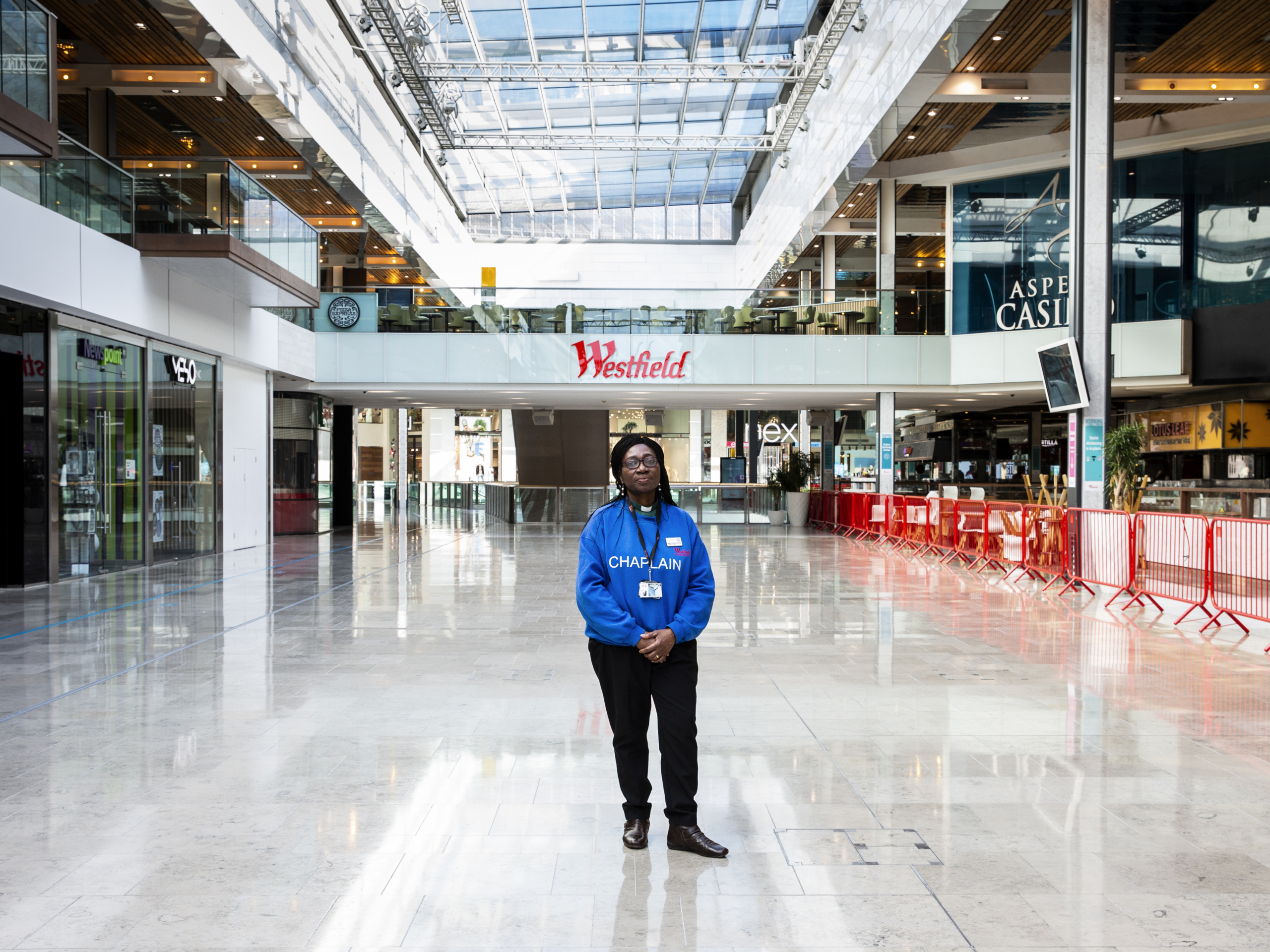
Reverend Christiana Asinugo, Chaplain for Westfield Stratford City
Life in Westfield is usually bustling. You walk in here and you are reinvigorated, even if you’re feeling low, because of all the people and all the staff who are pleased to see you- for me it’s life giving. I’m sure many of the staff feel the same too because it’s where they spend a lot of their time, making friends and being a family here. For Coronavirus to just take it away from them in a blink of an eye, it must have been very hard for them. I’ve been in touch with some of the unit managers and one of them told me, because of the way things are, that staff have been told if they find a new job elsewhere they should just take it. There has been a complete loss of hope and an insecurity about what the future would bring. I’ve been in a few days to speak to the security guards and others who are around, and when met with the emptiness and the quietness of the shopping centre I found it heartbreaking. I’m looking forward to things coming as near to normal as we can get it.
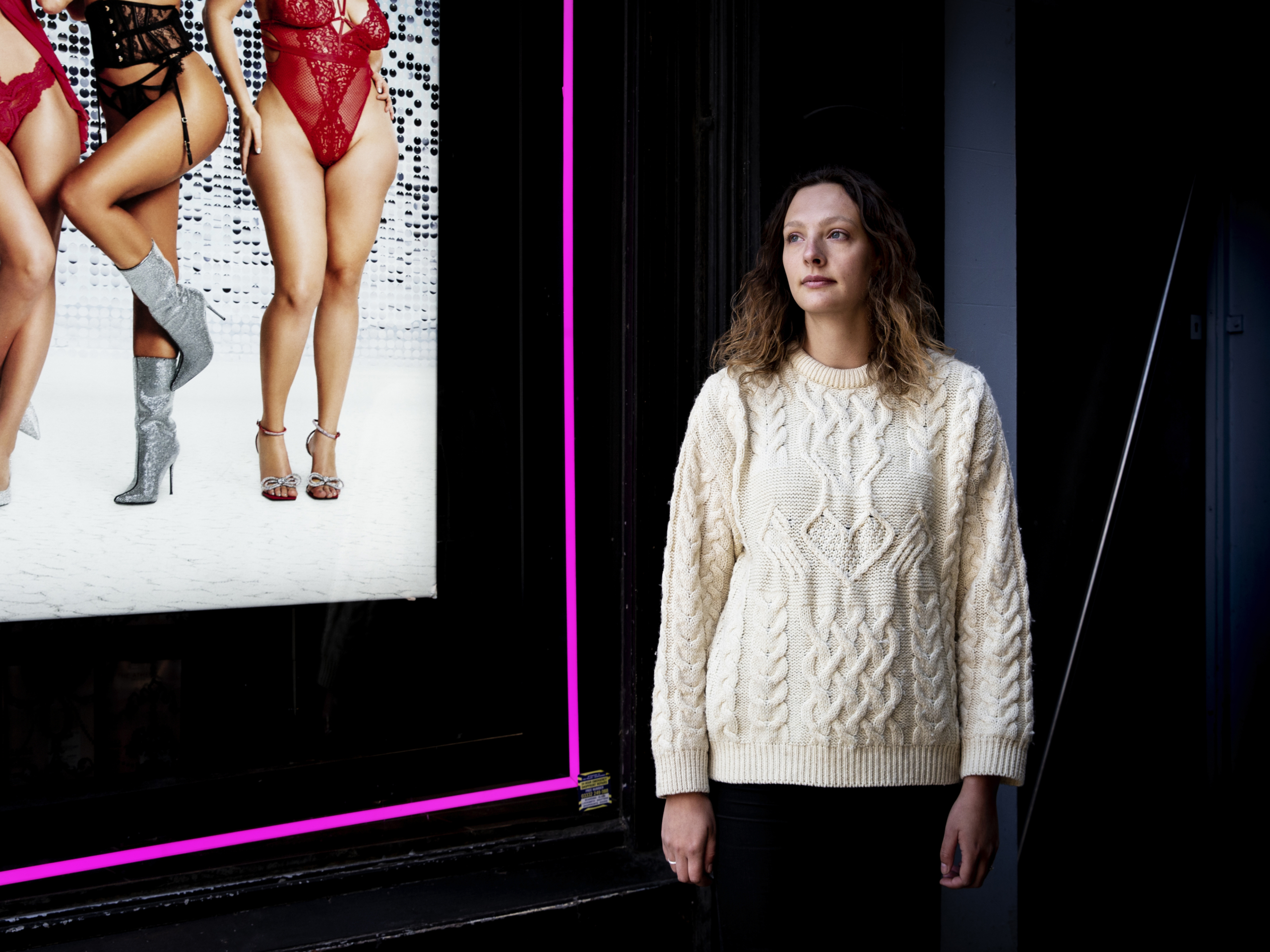
Ellie Barrett, Strip Club chaplain and Nightlife Ministries Coordinator for Third Space Ministries, Soho
“God probably hates me for what I’m doing” is often the perception of faith in the industry I work in, so the biggest breakthrough for me has been to show that whatever your life choices, you are a person and God does love and support you. We’ll usually go in pairs to the different clubs and spend about an hour sitting in the changing rooms or the breakout area so that when the girls are coming for breaks, they can sit and chat. We offer spiritual, emotional and pastoral support so if people just want to chat, that’s fine and if they want to talk about faith, that’s also fine. I’ve been blown away by how much people want prayer though and are starting to pray themselves, even without necessarily having faith. People are in the industry for different reasons and some enjoy the job but others don’t. Sometimes they need our support just for the night if they aren’t prepared for a situation that they’re in, or often it can be about family or friends or wider stuff that’s going on in their lives. Occasionally one of the girls might want to invite us to talk to her customer, so we’ll chat to him but the men aren’t our focus. During the lockdown conversations have been on the chaplaincy phone regarding mental health issues and not being able to do the work, or the fact they’re spending more time at home when, in some cases, home life isn’t that great. However, for those who were already thinking about making a change, Covid has given them a chance to take stock and a lot of them have chosen to go into new careers which are more stable at the moment. It’s been eye opening to me that I can still feel like a chaplain even though the clubs have been shut down for over a year. Since I started I’ve built some close relationships from seeing people on a weekly basis and going forward I’ll probably take those relationships with me. Even if they no longer need me as a strip club chaplain I can still be there as a support or a friend to them.
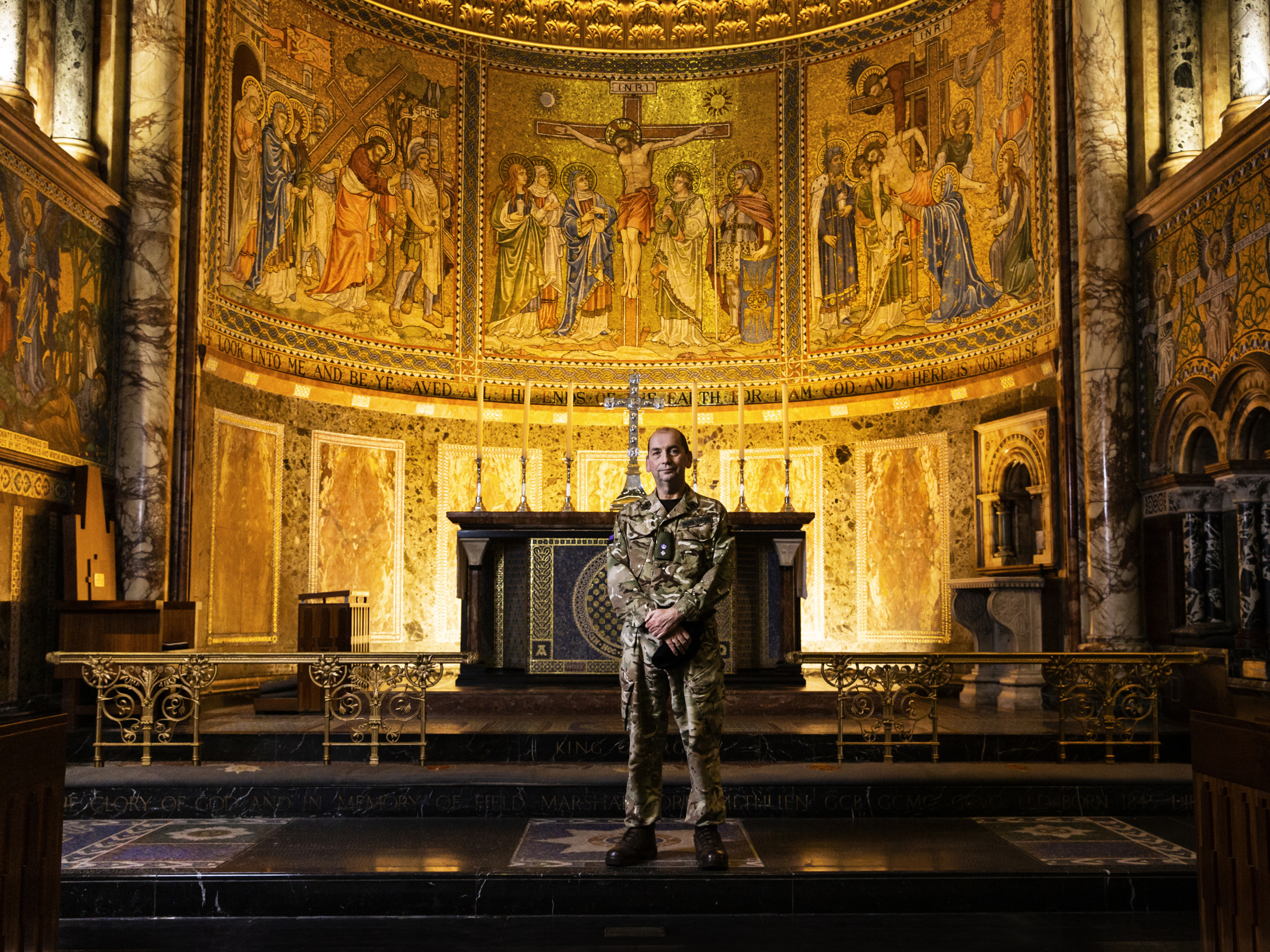
Padre John Vincent CF, chaplain to the Household Division, The Royal Military Chapel (The Guards’ Chapel)
Soldiers are trained to deal with what’s in front of them, so fighting Covid is no different from fighting a physical enemy in terms of approach, but usually that involves deploying on operations and being away for six months at a time. It’s easy to isolate yourself from your family if you’re 2,000 miles away in a desert somewhere, but when your family is just a short journey away, some people have found that a challenge. When you’re on an operation in a war zone you face all sorts of restrictions from your movements and daily routines, to not being able to see or even speak to loved ones for weeks on end. The way you deal with it is to ask yourself, “What can I achieve today?” rather than thinking of how many months more there might be. That’s been my mental approach to this and I’ve tried to enjoy and cherish the things I am able to do.
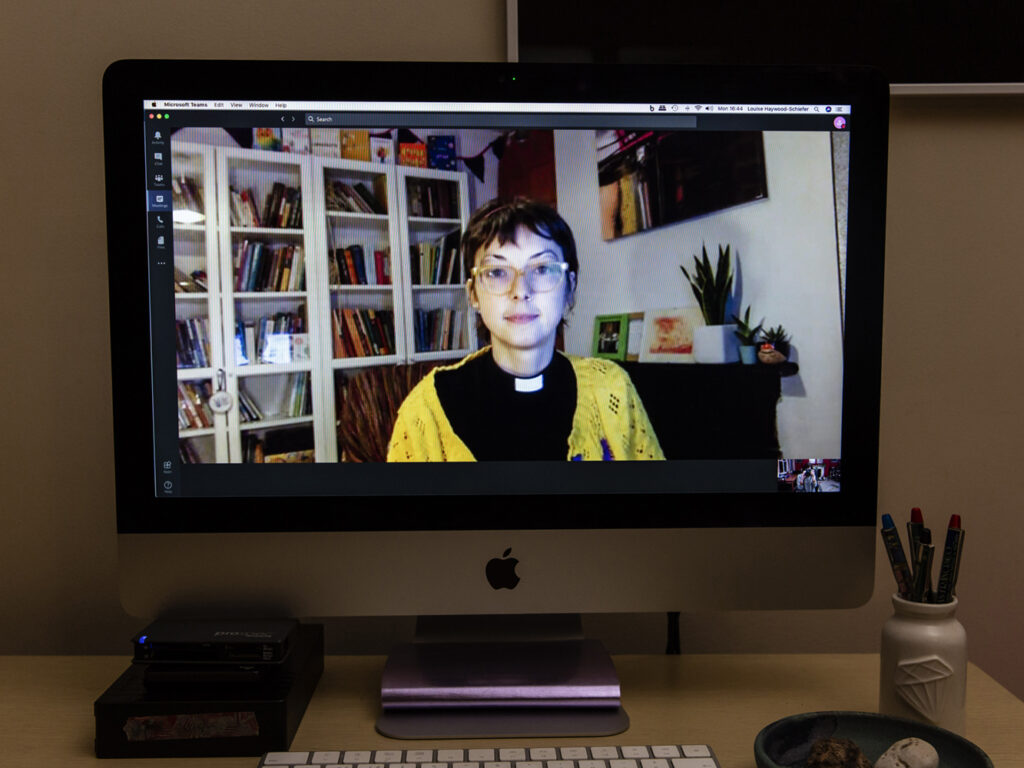
Reverend Dr Jenny Morgans, university chaplain at King’s College London
It’s a really hard time to be a student right now and nothing can get this time back for them. Many feel very isolated and are having to work at home with their parents which is especially bad for those who aren’t in very good family relationships, or who don’t have a good internet connection or private space to work in. I spoke to one student who told me that none of his lectures is at a specific time, they’re all pre-recorded. So he can instantly access all his lectures for the rest of the year but he doesn’t do it, because there’s no urgency for him and he is really struggling with motivation. He doesn’t have any seminars or any way of properly talking to his classmates so he isn’t doing the work. I really miss being present for students.
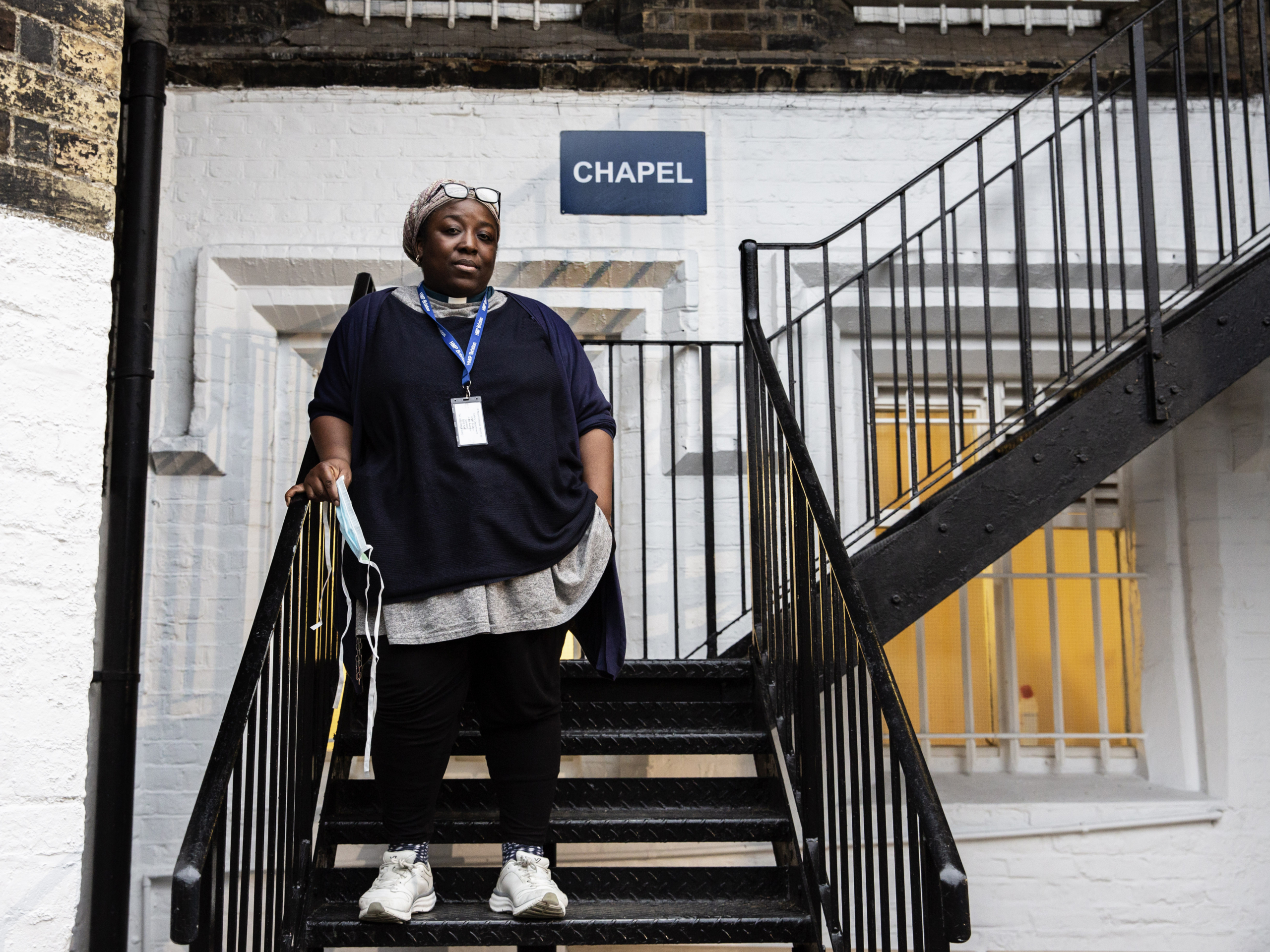
Reverend Bola Adamolekun, chaplain at HM Prison Brixton
How do you provide comfort and solace to guys who are stuck behind doors for a ridiculous amount of time? I’ve found that if you make the time, the people you speak to are more open now and there’s more opportunity for that conversation to get deeper and be more meaningful. It’s been less about just wanting an excuse to get out of the cell, it’s almost like they’ve treated it as a gift and they’ve decided that if I can engage with them, they will engage with me too. You can come across some truly broken and desperate cases, it’s really heartbreaking sometimes. There are a lot of people in prison for criminal reasons and there are a lot of people in prison because society has been criminal to them.
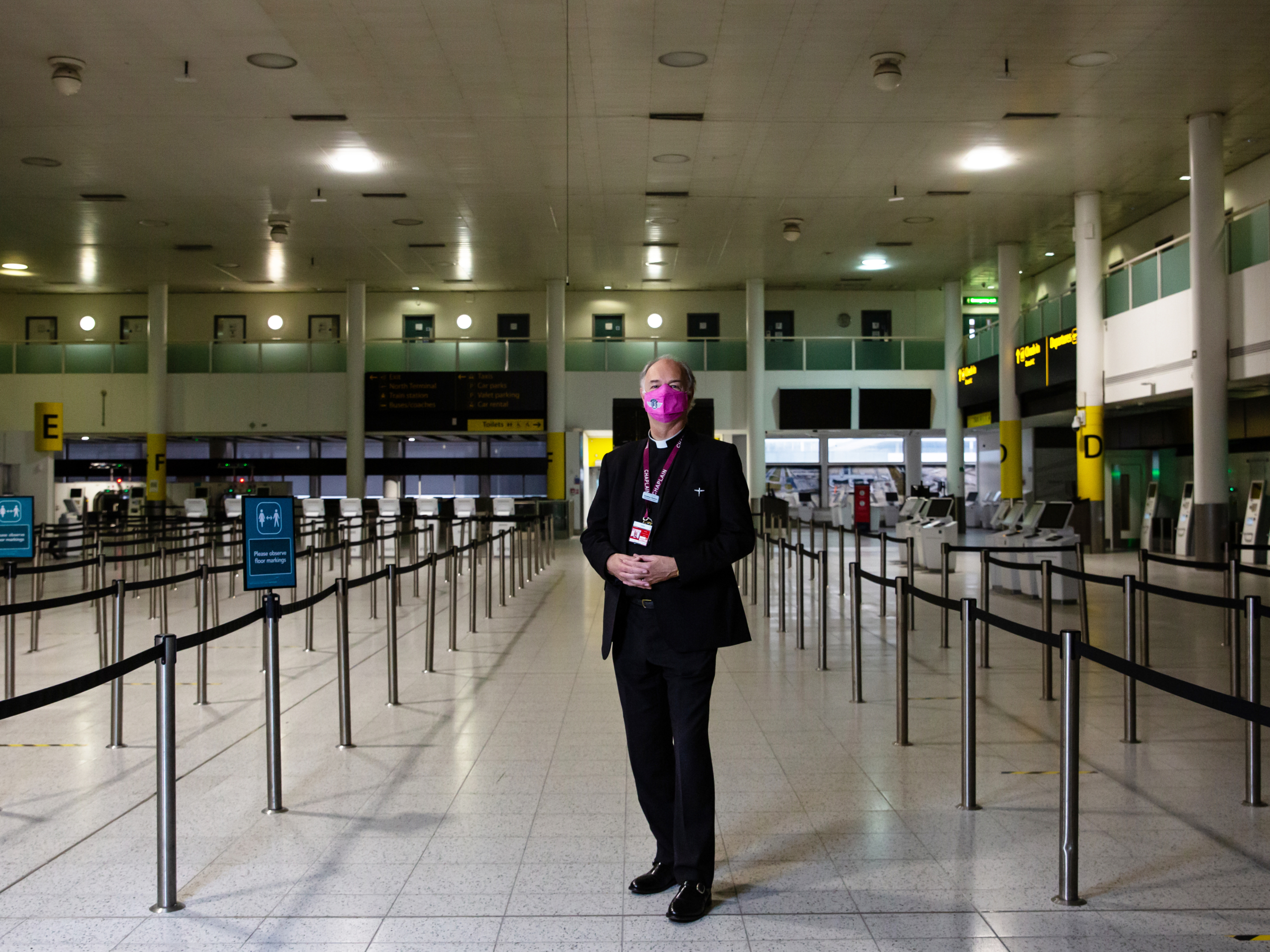
Reverend Jonathan Baldwin, head chaplain at Gatwick Airport
The airport is my life, it’s my parish. You build up relationships, you get to see people regularly and over 18 years here, I’ve done baptisms, weddings and sadly, funerals. We have a passing congregation except for our “regular irregulars” who we only see two or three times a year, and there are currently fewer people coming into the chapel for worship, but the pastoral care hasn’t gone. I’m still walking around and chatting to anybody at any time but our passenger numbers have massively depleted. The wonderful thing is that the staff have got a little more time, they’re not so rushed or pressurised and you can pick up more of an in-depth conversation. Like with the cleaners, there was one lad who came up to me and said: “Can I have a chat?”. I’ve not met him before but wallop, it all came out.
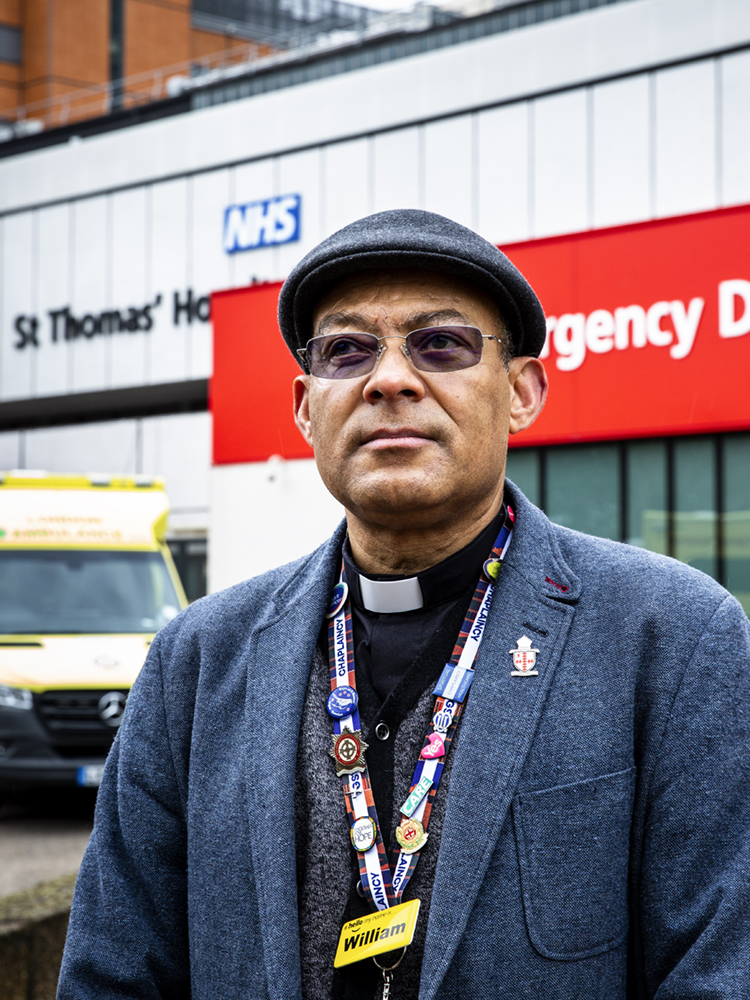
Reverend William Sharpe, Senior Chaplain & Deputy Team Leader at Guy’s and St. Thomas’ NHS Foundation Trust
There has been immense pressure on NHS staff, not just the doctors and nurses but also porters, housekeeping, admin staff – every single person has played an enormous part trying to keep this country moving. At the start of the first lockdown I received a Government letter telling me to shield at home, which changed the dynamics of what I’ve been doing for the past 16 years. I could no longer come into the hospital or have face to face contact with patients, families and carers, so I had to learn a new way of doing chaplaincy by offering remote support. My new role is to support staff members who work in the community, many of whom have been impacted by the influx of patients during the first and second waves of the virus. Some have been overworked and some have seen personal bereavement- every person has a different story- and we provide a safe haven for them to talk through personal issues if they are struggling. We are there to actively listen, help them address any mental health issues that they’re going through and signpost them to other departments if it’s relevant to their well-being. In this pandemic we’ve all had challenges and difficulties, but when you’re looking at disaster all around, you have to try to find some stillness and hope. When I interact with a staff member or a colleague and I’m able to bring some hope into their life or a change in their circumstance, I find it so fulfilling and rewarding. I think it’s an honour and it’s why I have the best job in the world.
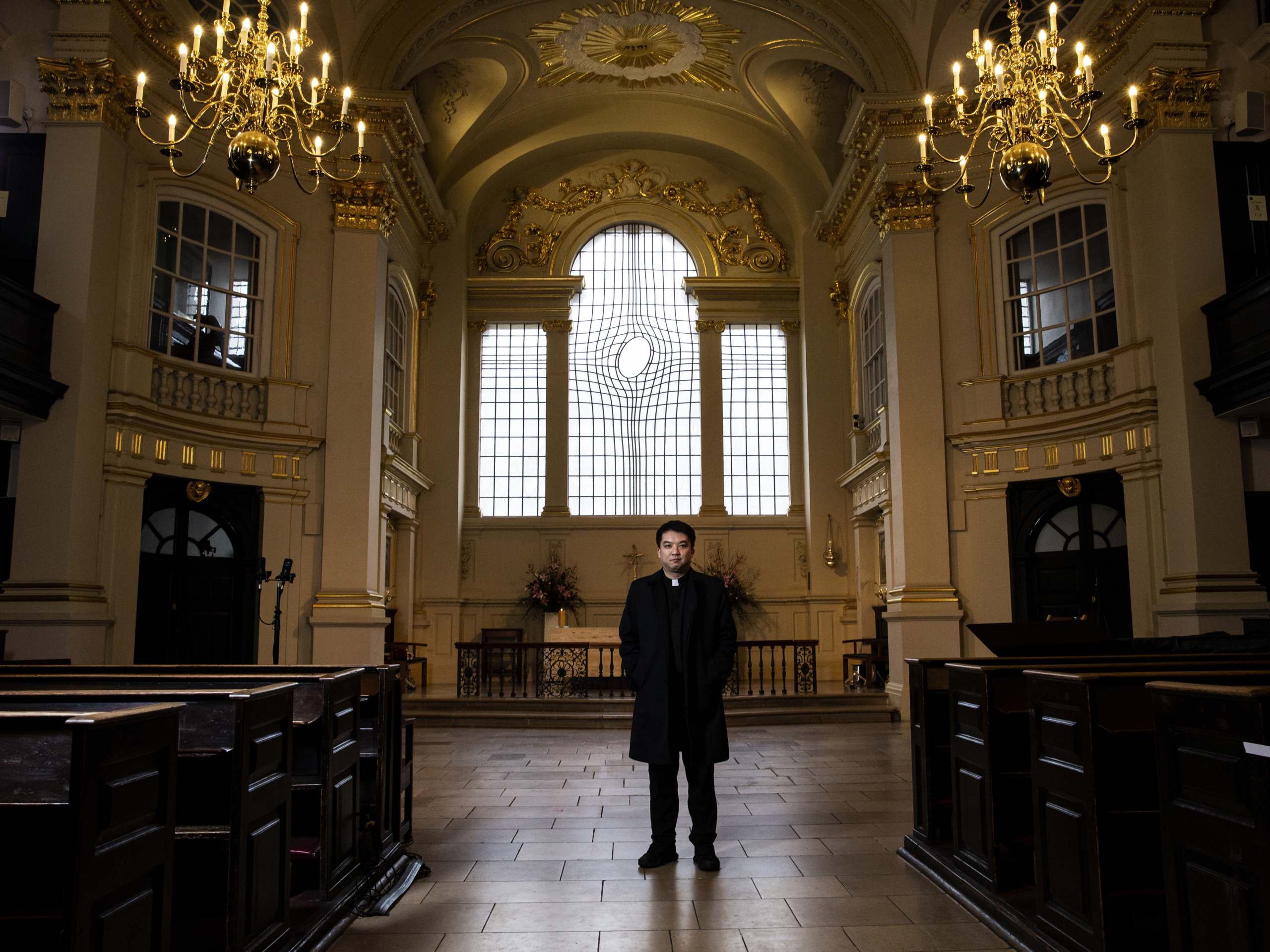
Reverend Harry Ching, assistant vicar for international ministry and priest to the Chinese congregation at St Martin in the Fields, London
My primary focus is the Chinese congregation who commute here from all across London because we do services in Cantonese and Mandarin. I lived in Britain for many years before wearing a clerical collar and since the pandemic began, it’s the first time I’ve been racially abused by strangers which for me is unprecedented because I’ve integrated into this country very well. I went to school here and I see myself as British too, so I never would have imagined my Chinese identity would be exposed and abused in that way. The word “crisis” in Chinese is written in two parts. The first part means danger and the second word is possibility. When there’s a crisis, there’s also hope.
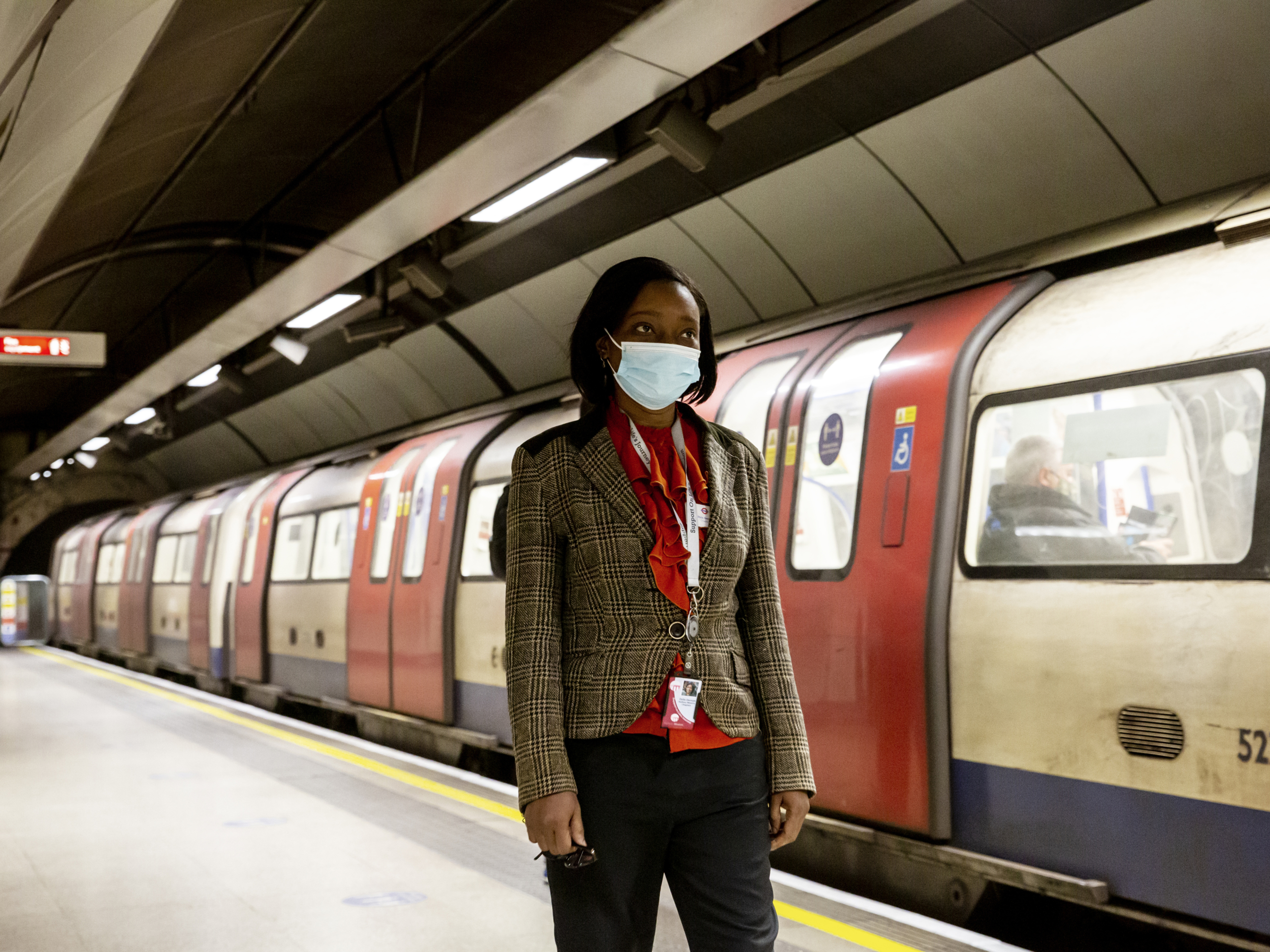
Pastor Dylis George, chaplain of the Northern Line on the London Underground
Pre-pandemic there would be days when I would ‘hop on/hop off’ the line as far as High Barnet making contact with staff. When there are fatalities we are called upon by the British Transport Police and have to respond within 24 hours so we can offer support to the witnesses or those who have attended a fatality. For me our motto is ‘love and support’. The support is for everyone regardless of background or faith; I never even ask about religious beliefs. All I want to see is that someones mental state and well being is good and to make sure they aren’t depressed or frustrated. I’ve found talking to be very therapeutic and healing even if I don’t offer a solution. A staff member called me on the phone recently and told me exactly what he was going through and I just listened. When he finished, he started crying and thanking me saying that he had needed this to come out of him but he didn’t want to tell his mum. It was so fulfilling for me that I could be on the other end of the phone.
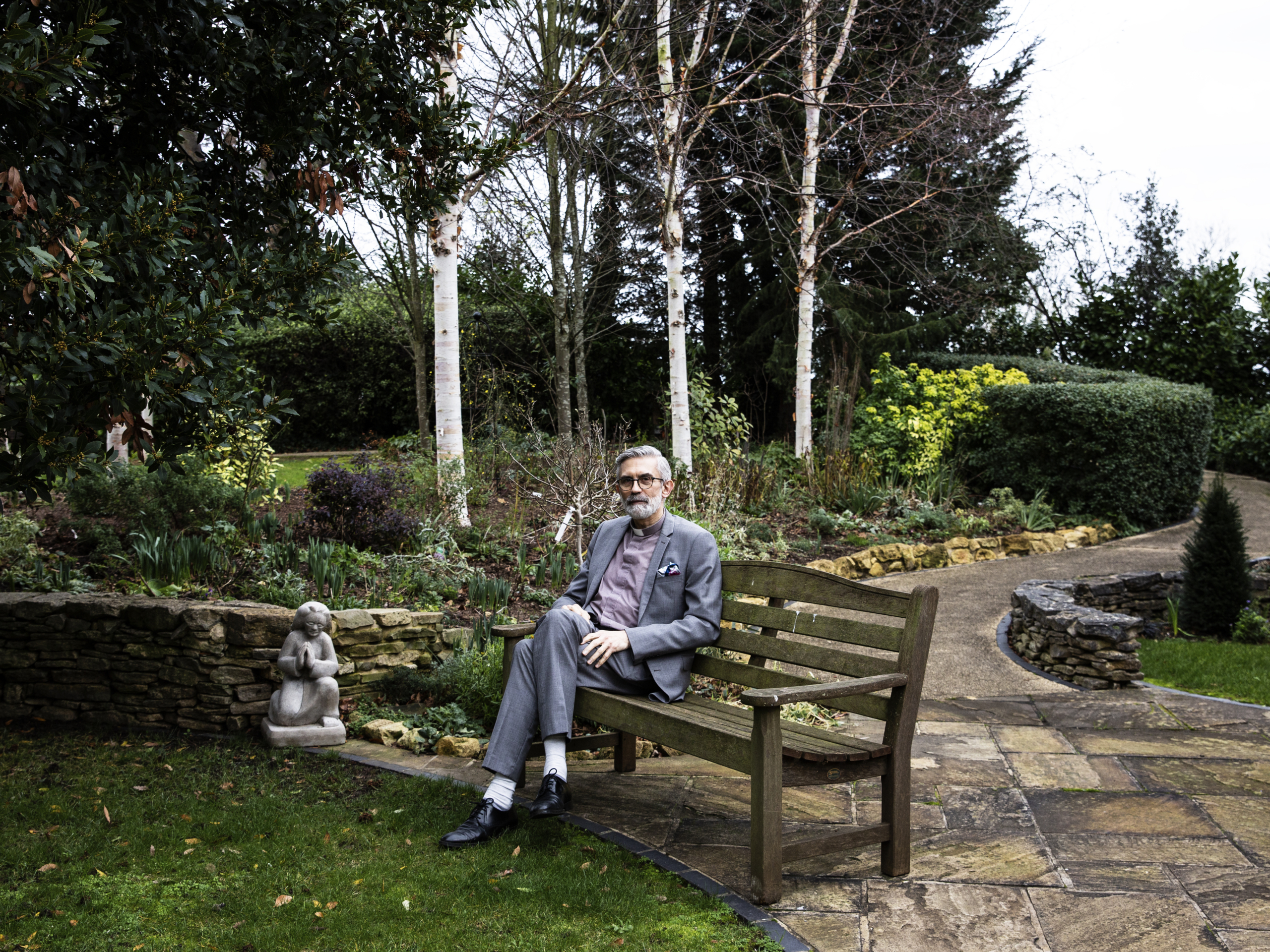
Reverend Andrew Goodhead, Spiritual Care leader at St Christopher’s Hospice
During the first lockdown I went to see a patient at home who had been discharged from hospital with Covid-19. I washed my hands and put on my PPE before going in to see the patient who was dying peacefully. The patient wasn’t really conscious so my conversation was with the son and grandson who both wore masks. I said prayers and then reflected on the drive back about the great ritual it had been. It is much more difficult to engage in a connection when you’re dressed up and protected against each other. Normally if I greet a patient, I might put my hand on their shoulder and when I say commendatory prayers I might put my hand on their head at points or make the sign of the cross on their forehead, and none of that could happen. But really that’s all ritual and the words I say aren’t enhanced or improved by those actions at that point, so you just have to start doing things differently.
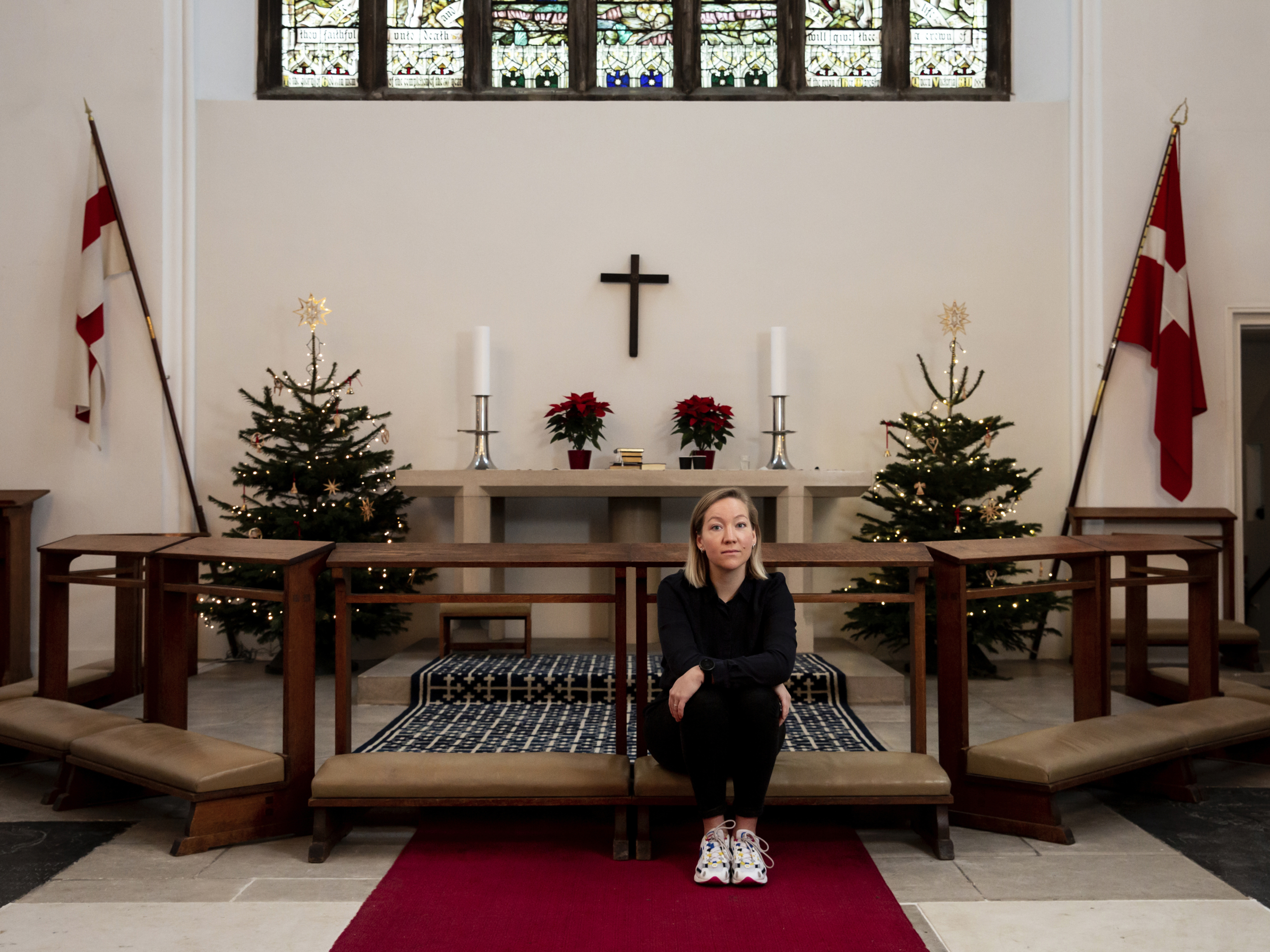
Pastor Johanne Nørtoft Thomsen, pastor and student chaplain at the Danish Church in London
My main task as student chaplain is to provide confidential one-to-one counselling sessions with Danish students here in London. Before Covid, the themes were generally the difficulties in student life, feelings about not being good enough and exam anxiety. Now it’s a lot about Covid and the uncertainty that’s affecting all of us. It’s so difficult for human beings in general to live in uncertainty and not be able to plan anything or to see that the plans that you’ve made are not going to happen. Being on Zoom with lots of people can offer many positives if you feel isolated, but it can also give you an empty feeling after you’ve closed down the room. It’s a strange feeling for the body, because even though your mind knows you’ve been together with people, your body hasn’t felt it.
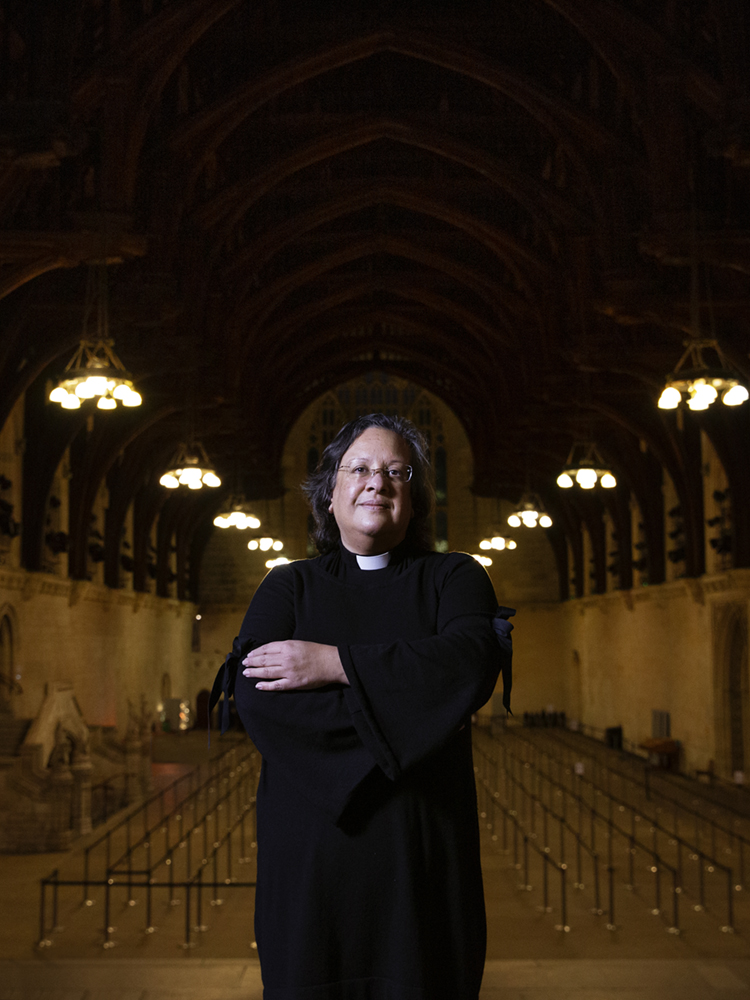
Reverend Tricia Hillas, Speaker’s Chaplain, House of Commons
I’m conscious of the weight of responsibility on MPs, their staff, and all who support the work of Parliament, so I try to provide a sanctuary where nothing is asked of them. It’s just a space they can use however they want. During the pandemic we’ve been very aware of the pastoral needs of colleagues still working on the estate and those who aren’t. One of the key concepts has been to create a whole suite of offerings based around pastoral care, well-being, and mental health, and I’ve been glad to work closely with other teams towards this. I have only been in this role since February 2020 and I have had to work creatively and with more intention during the pandemic because many people still don’t know me yet. I think there may have been advantages if I had been here a while – but on the other hand, being the new girl makes it easier to say ‘hello’ and introduce myself. As chaplain to the Speaker, I lead parliamentary prayers as part of the Speaker’s procession each day that the House of Commons is sitting. The ceremonial aspects have remained intact, but the way we do them, just like the rest of life, has changed with social distancing.
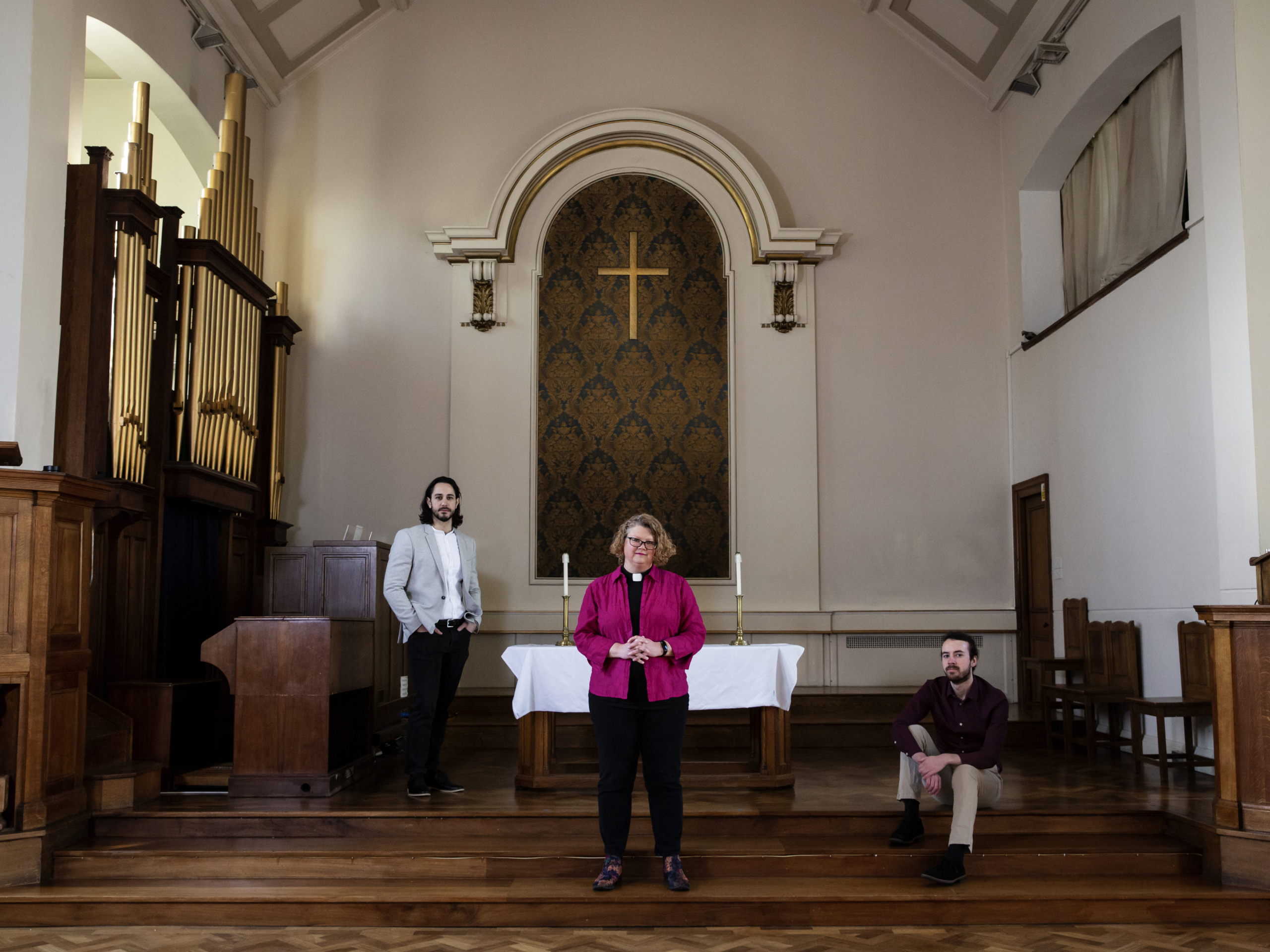
Reverend Jennifer Mills-Knutsen, Reverend Jared Jaggers and Jonathan Miller, American International Church
Watching American politics over the last four years has been stressful for the whole world because it’s been so volatile and xenophobic. We recognize that in an international, interracial, multicultural church like ours people sitting in the pews, might have different views but as faith leaders our role is to promote unity and provide a space for people to talk honestly with one another. When we realised Christmas wasn’t going to happen in the same way this year we walked across London delivering small bags with advent candles in to the families in our congregation with young children. Between us, calculated by our phones and our little step counters, we walked almost 170,000 steps in about a week. For a lot of people, it meant the world that someone was thinking about them and cared enough about their children to bring them this really simple, inexpensive bag of things to help make the season meaningful.
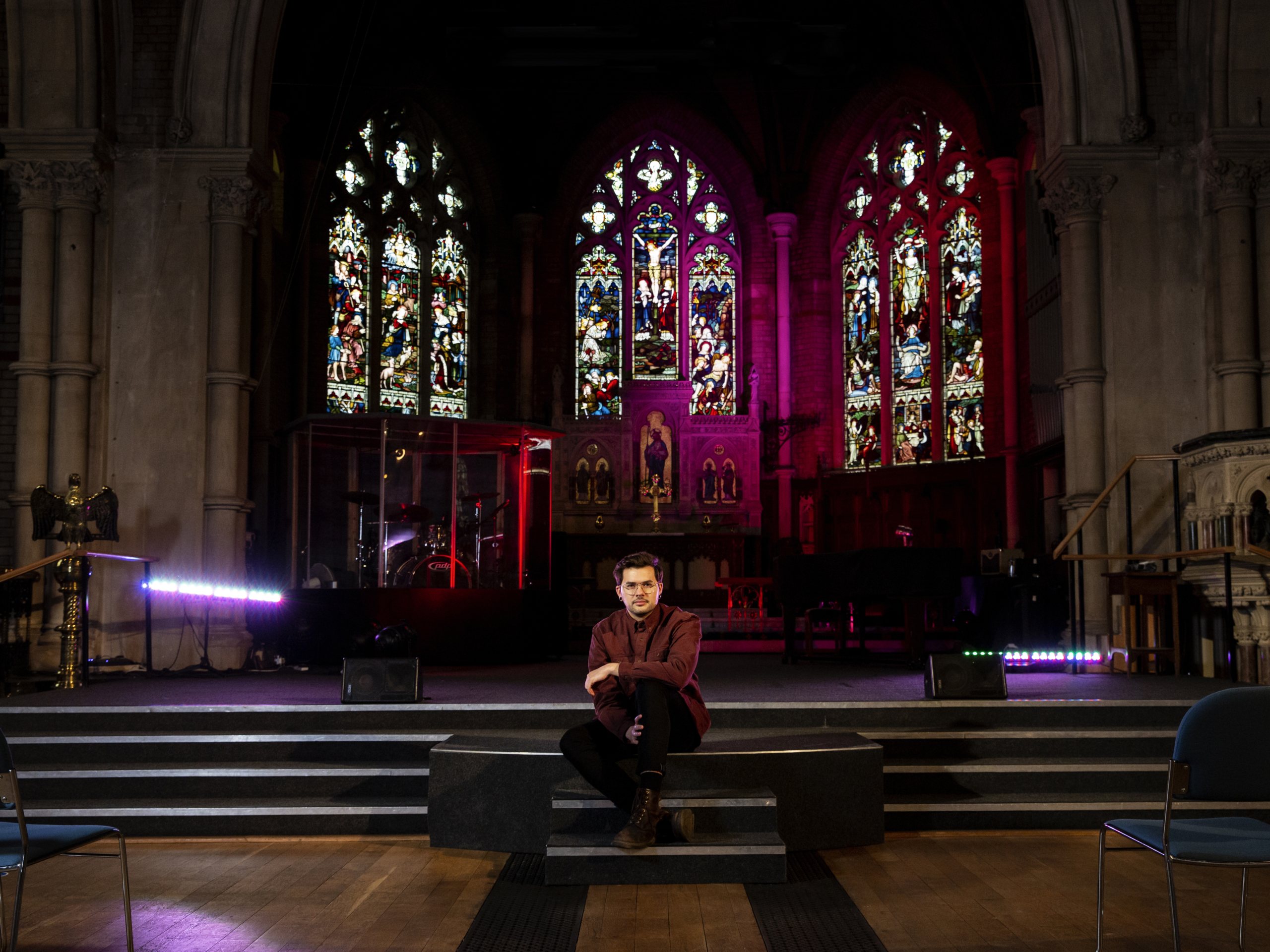
Youth pastor Josh Felstead, St Stephen’s Church, Twickenham
We thought that young people would find it easiest to adapt because they’re digital natives, but they have found it the hardest of any of the groups that we’ve connected with as a church. They spend all their time online doing their school lessons and socialising so some of them just can’t face doing church on Zoom too. Initially it was exciting to be creative by producing YouTube videos and doing Instagram Live- described as ‘Cringestagram Live’- but it was absolutely draining coming up with and editing new stuff each week, whilst mourning how everything we were doing was way less effective than when we could meet in person. I started spending my daily exercise hour doing one to one meet ups where we just grab a bag of chips or something and then walk and talk. Some of their parents have messaged me afterwards to say how much they enjoyed it and are looking forward to the next time which is a personal highlight because it shows I am making an impact. Topics around mental health issues have arisen but whilst I’m really good at asking questions and listening, I know my limitations and I’d never call myself a counsellor, I prefer to think of myself as a big brother.
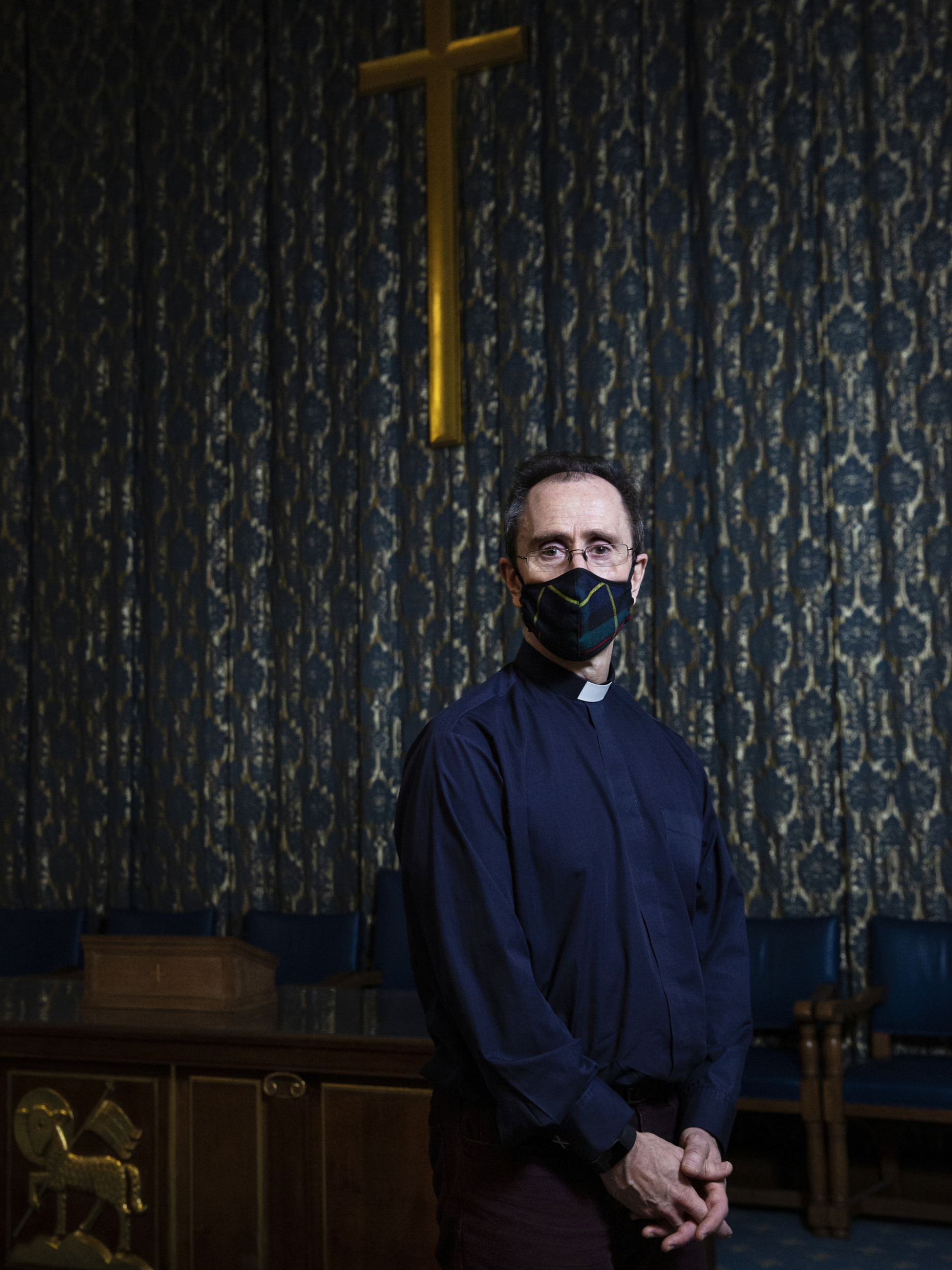
Reverend Angus MacLeod, St Columba’s Church of Scotland
The majority of our congregational members who are Scots have done reasonably well having come down here to live yet they still love and feel a very strong affinity to Scotland. I think we will still exist in London even if another referendum leads to Independence, but it will be interesting to see how people perceive us and whether there will be a degree of animosity towards our presence. I don’t think the overall role of the minister will necessarily change post pandemic because there will still be children to baptise, couples to marry, people to bury and those who need looking after. I think the thing to reflect upon is what kind of society we will emerge as from this because it’s brought out the worst and the best in us. The longer we stay under pressure, there’s no guarantee that it will be the best. There’s a fantastic dance music program on radio Scotland called ‘Take the Floor’ where they take song requests. It’s on a Sunday afternoon and I listen to it every week as I cook the dinner. You might laugh but for me it’s become a pillar of just keeping oneself going.
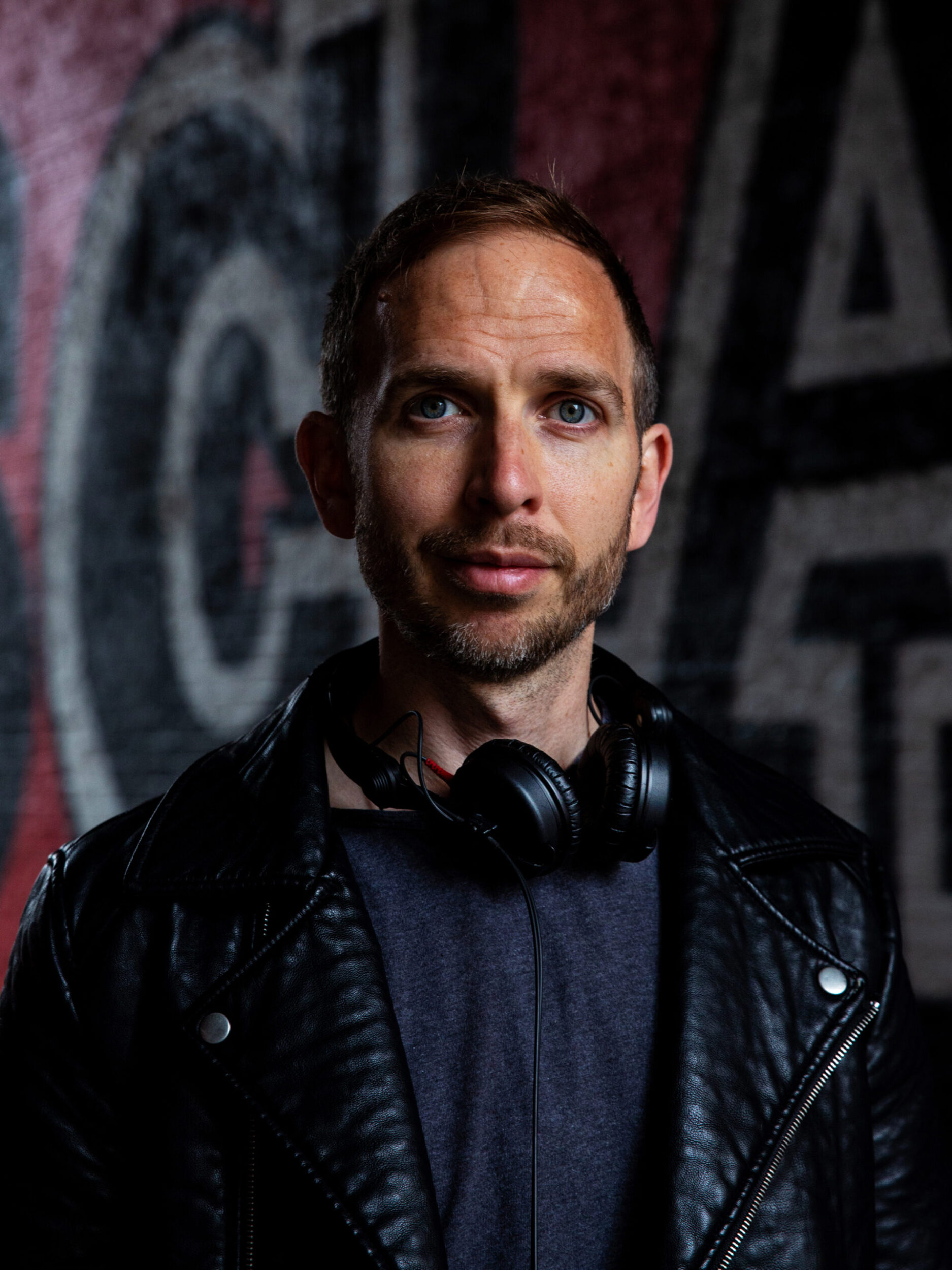
Luke Rollins, DJ Ministry Coordinator at Third Space Ministries
DJing can be a really isolating experience with a lot of highs and lows- moments of euphoria can lead to emptiness and there’s often a lot of travel leading to broken relationships. If you're a Christian DJ, often you’re not understood by the church because you can’t make Sunday morning sermons very easily, or perhaps your lifestyle choices are at odds with the orthodox.
Regardless of whether an individual has a faith or not, chaplaincy is journeying with somebody as they go through a crisis or addiction for example, or maybe it's just that they are lonely and in need of support.
My role is to be supportive, but there has to be some boundaries because it could easily become consuming if not. By its very essence the relationship isn’t neat- you’re not necessarily a friend but you are always present when needed- so I have to tread a fine line by communicating effectively the times I’m available so that I have time to recover and rest and be with my family. I never find it a hardship though, it’s always a joy.
The pandemic taught me to appreciate the value of rest and downtime and I learnt that my value isn't about what I produce but is about who I am inherently and who I was meant to be. Going forward with my chaplaincy, I will encourage people to take the pressure off themselves. The music and DJ industry is performance based and built around affirmation, external applause, or having to constantly stay on top, all of which are exhausting. Self care is really important.
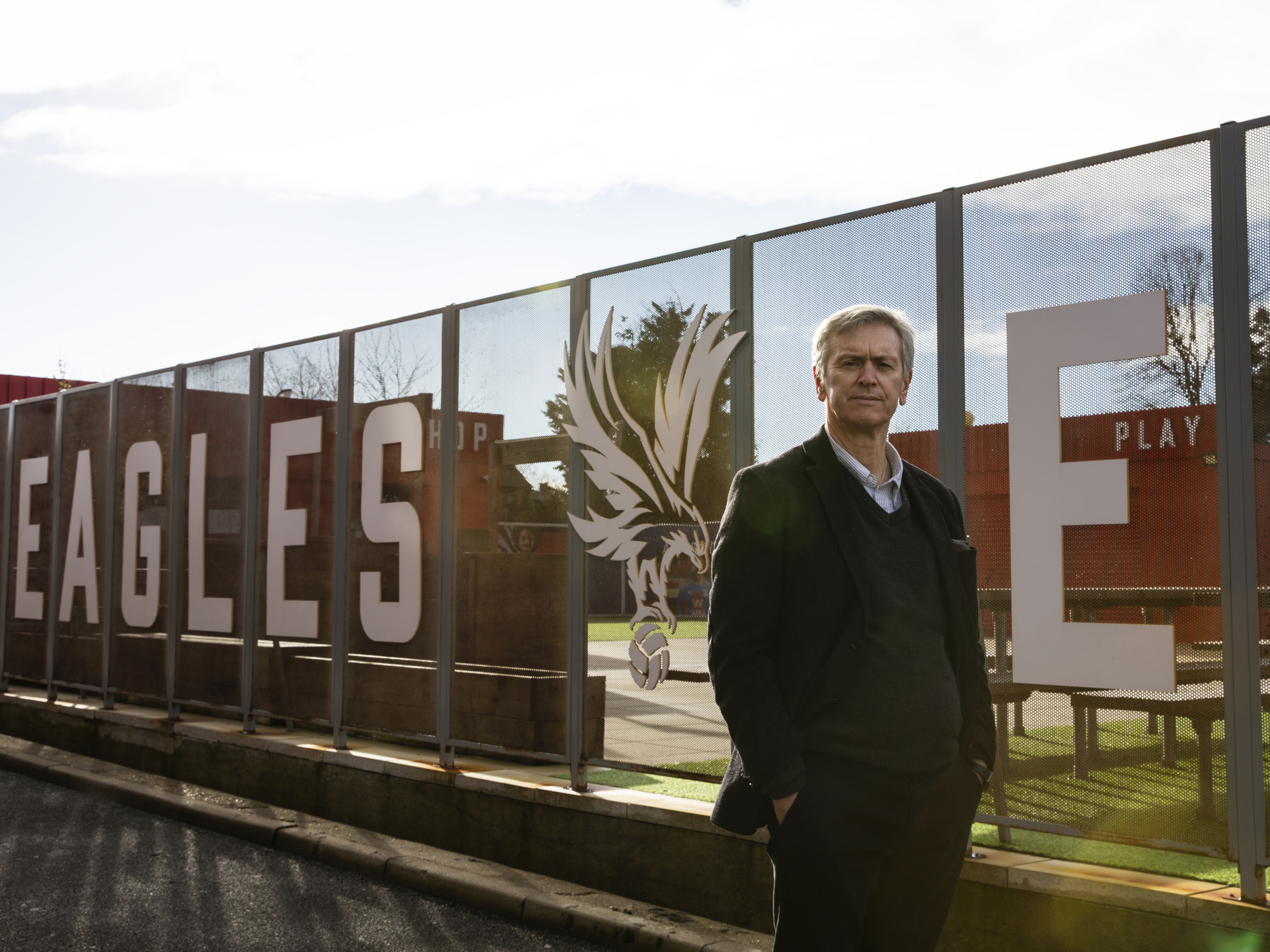
Pastor Chris Roe, chaplain to Crystal Palace Football Club
The role of a football club chaplain isn’t necessarily about religion, it’s about being available and making relationships so that if anybody feels like they could do with some pastoral support, which is outside of the context of football and outside of the context of the club, they know where to go. On a matchday I would usually get here about three hours before kick off just to make myself visible because the more integrated I am, the more effective my role is. Due to the restrictions that have allowed the football season to go ahead this year, I’ve not been able to get down to the training ground since March 2020 and in football that might as well be 50 years.
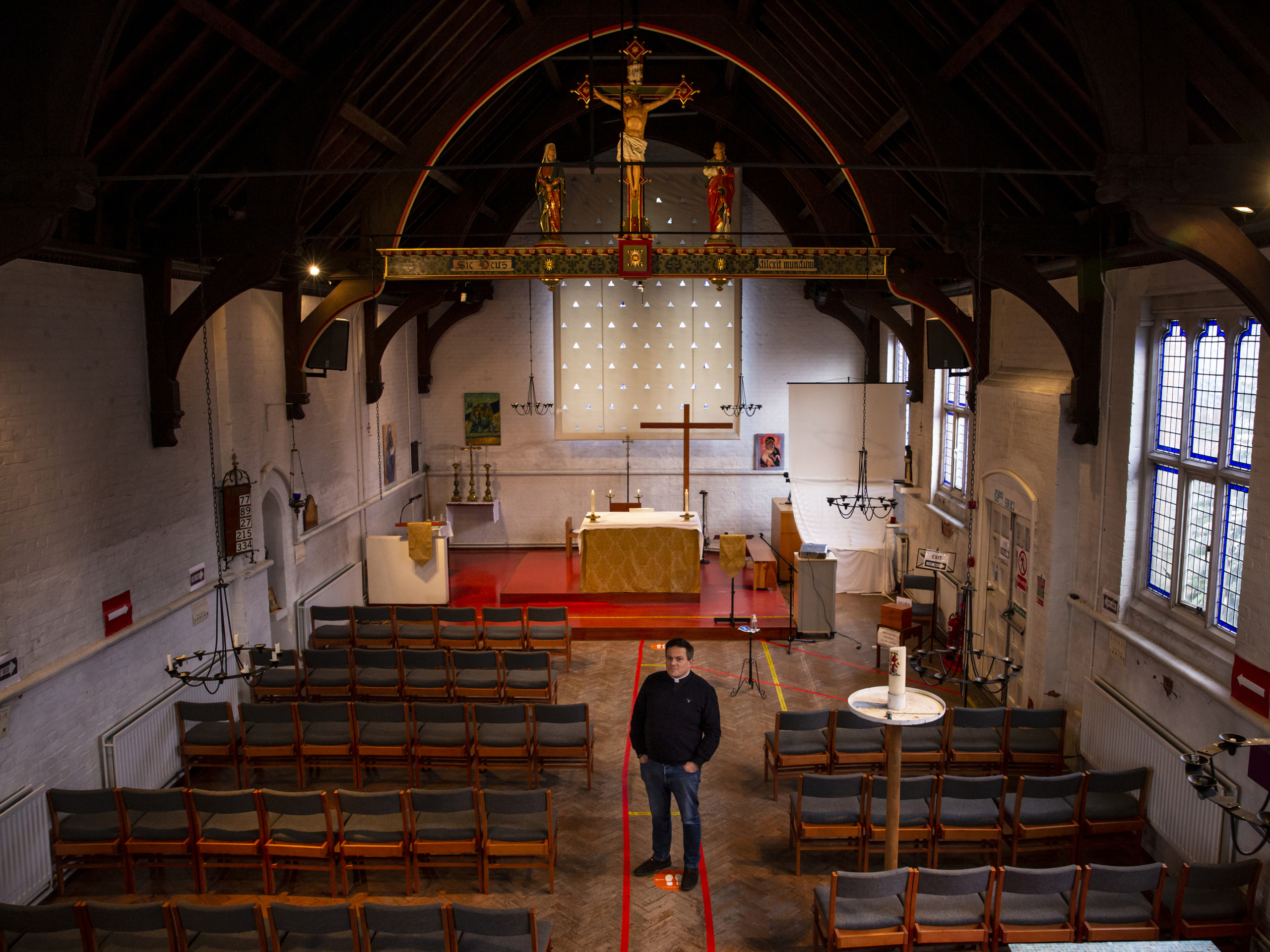
Reverend Father Marco Lopes, St Martin’s Church, Plaistow
The moment you’re born, your days are numbered and there’s no avoiding it- we just have to deal with it in the most healthy way possible. Until now as a society we haven’t been good at that and I anticipate that we will have more conversation on that in the near future. We hit the pause button for a year and people will have to get closure on all of this. I’m sure part of that closure will have to be through addressing the issue of death and how life is so fragile. My view of church is to not only do services on a Sunday; putting on a nice show but then nothing changes in everyday life. What’s the point of saying we’ll pray for you but then we’re unable to sit down with that person and see what we can do for them? I’ve really tried to be available to meet people’s needs and spot pockets of poverty and deprivation within the congregation.
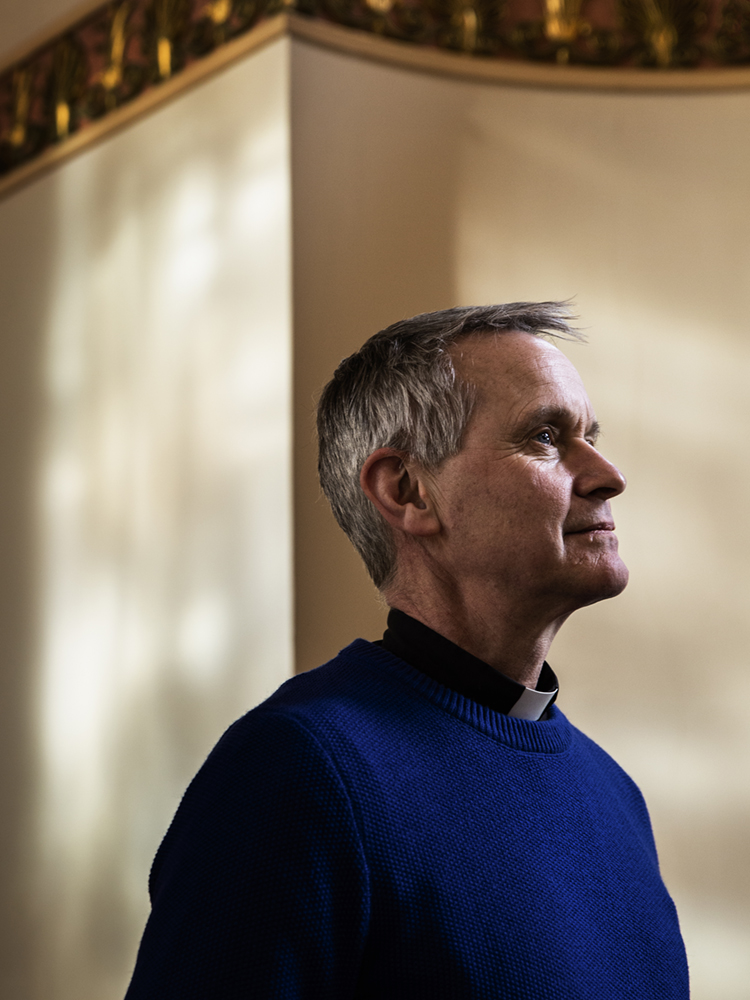
Reverend Giles Goddard, St John’s Church, Waterloo
It’s very encouraging the way different faith groups are working together and it’s been lovely sitting on a zoom call with a Sikh, a Muslim, a Jew and a Hindu. I co-founded ‘Faith for the Climate’ back in 2014 and we were getting geared up for the UN’s COP26 which should’ve been held in November 2020 in Glasgow. Having this extra year might have helped in the long run because I think people are more aware of the statistics, have plant based diets, and particularly from the first lockdown, I think people will remember the clean air and quiet. I’ve noticed that the church here has become less clergy centered which I think is partly because when you look at the gallery view in Zoom, we’re all the same size so it’s a great leveller. People have offered help because they’ve had more time and the way we work feels more inclusive. We’ve also been doing some fun things online such as coffee mornings, quizzes, for a while we had a pub and we’ve had a murder mystery. We’ve tried to make sure it’s not all just about church, it’s to stay in touch with people.
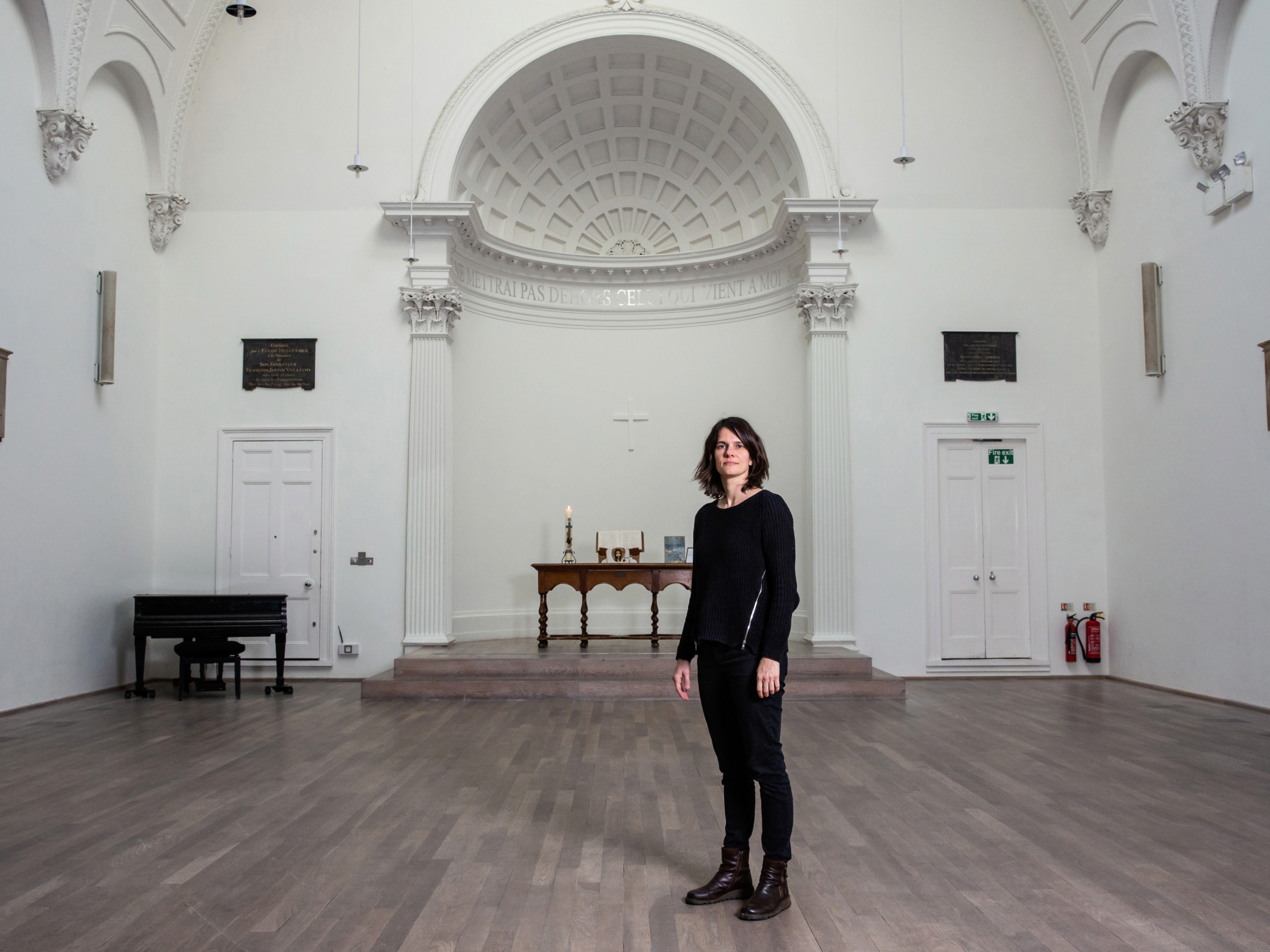
Reverend Carla Maurer, Pastor at the Swiss Church in London
We are a church for the Swiss community who live all across London so it’s not like we see each other in the neighborhoods or in the local shops. If we can’t meet at the church twice a month we don’t see each other but there is a strong feeling that we’ve really kept the community going and in some ways have grown closer. Over 50% of our income is generated through commercial hirings of the church which completely stopped, so one of our first concerns was about how we could keep everyone in employment. We tried to find other funding streams that both serve the community and bring in revenue. Currently we are working with a charity called Camden Giving on it’s Pathways into Employment scheme. A young Camden resident aged 21 is on an internship with us which is his first paid work placement to learn about general business administration. Youth unemployment is going up, and a lot of the usual stepping stone jobs in hospitality are now gone.
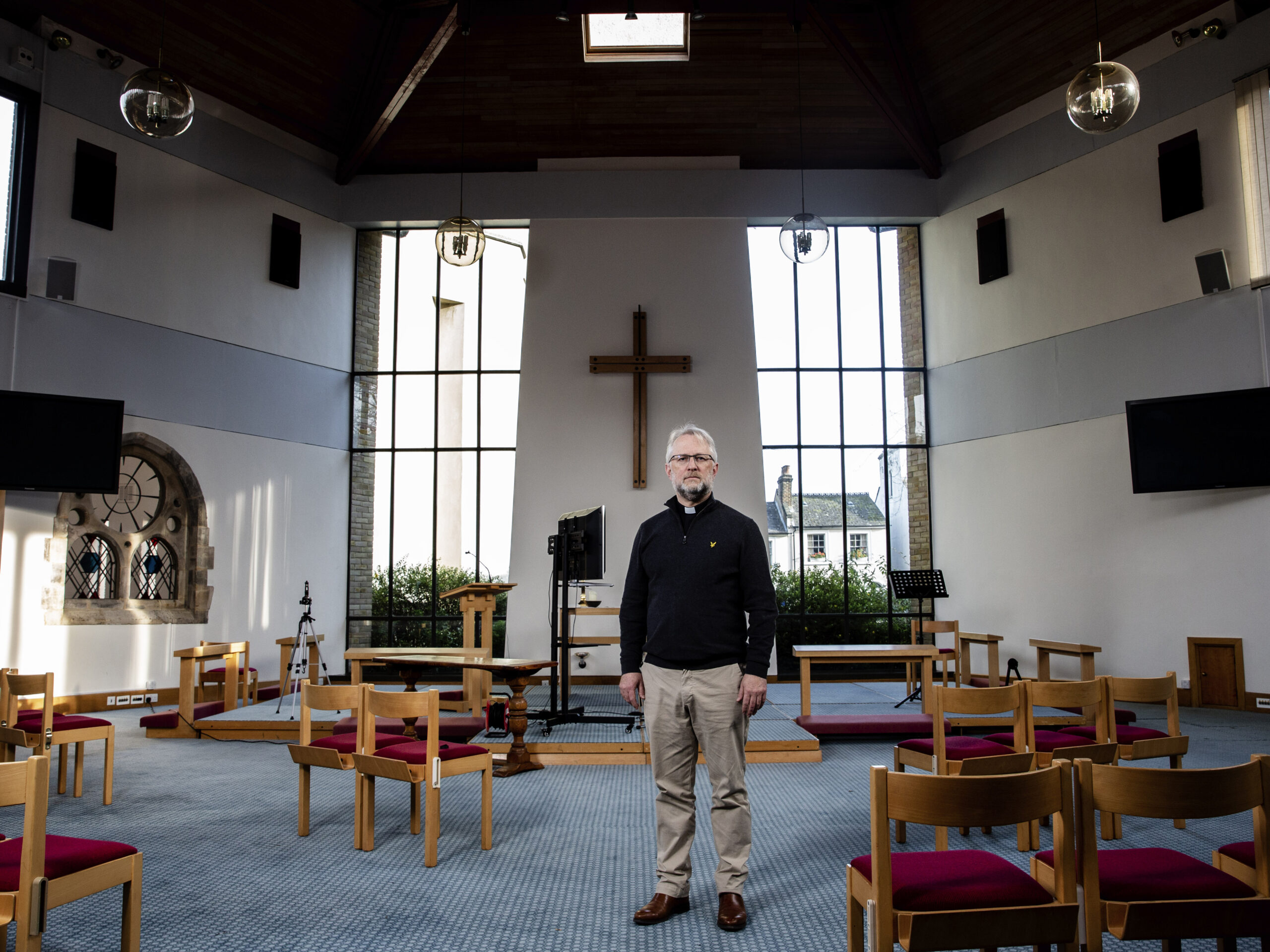
Reverend Jonathan Croucher, Christ Church, Gipsy Hill
Live-streaming on a phone with a microphone plugged in gives you such good quality without any of the complexity. I just stand up and preach like I would on a normal Sunday which I think gives the sense of being gathered together during the services, even if we aren’t physically together in the building. From March to July, when we were properly locked down, I was broadcasting services from the vicarage. My wife and I had my four teenage children at home who all appeared on video at various points which actually was one of the lovely things about that period of time. Quite a lot of people have told me since that seeing the vicar and his family together in the same situation as them was actually really significant. This idea that although everything seemed to be falling apart, there was a consistency.
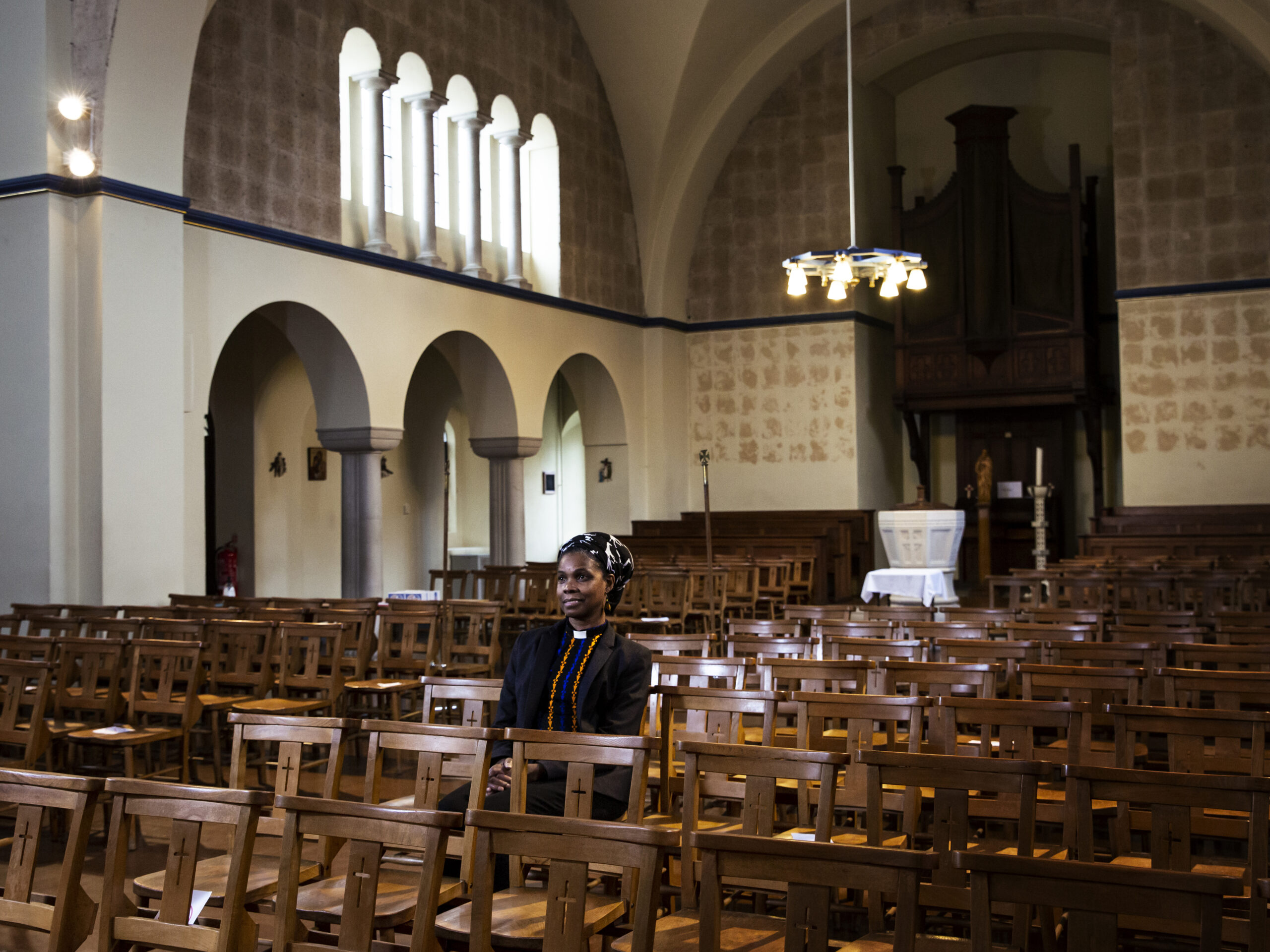
Reverend Sandra Schloss, St Luke’s Church, Peckham
After my own experience having Covid, I spend a lot of time informing my congregation of how important it is that we all have the vaccine. God puts these experiences to us for a reason and mine is that I can actually speak to people about how truly awful it felt and why having the virus is much worse than any side effect the vaccine can give us. I mention it in my sermons telling people that if we don’t have it we’ll be at the same point next year, missing another Easter and another Lent and just having it all on Zoom. I can’t wait until we can actually be here in church together, even if we have to keep social distancing and still wear masks.
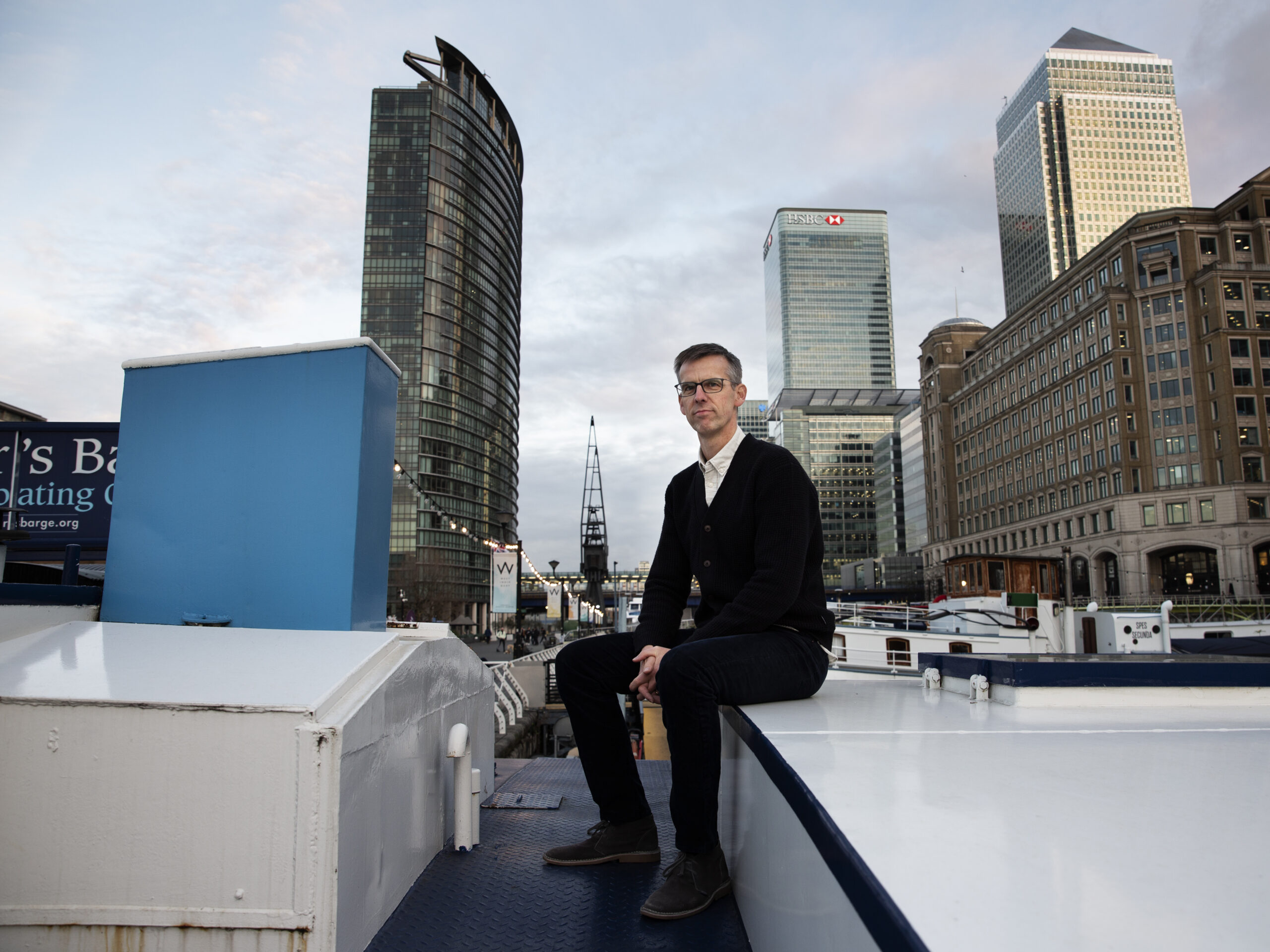
Pastor Marcus Nodder, St Peter’s Barge Floating Church, Canary Wharf
I’d be surprised if people aren’t asking big questions in the current situation but at the same time, it’s debatable whether people have the capacity and the bandwidth to actively explore the answers to those questions. At the moment many are stuck at home feeling weary, working longer hours than they were before, rolling out of bed straight to their desks. Some have been furloughed or made redundant too, so maybe the last thing they want to do is to start exploring or getting in touch with a local church. One church leader was telling me that he has just run an online evening for Christian couples who want some biblical input on how to cultivate their marriage. They’ve run this kind of thing before, but he said that this time every single couple in the church signed up for it and came, which is a sign that marriages are really under a lot of pressure at the moment, and for understandable reasons. I think couples see the need for some encouragement and input, so we may try that out here as well.
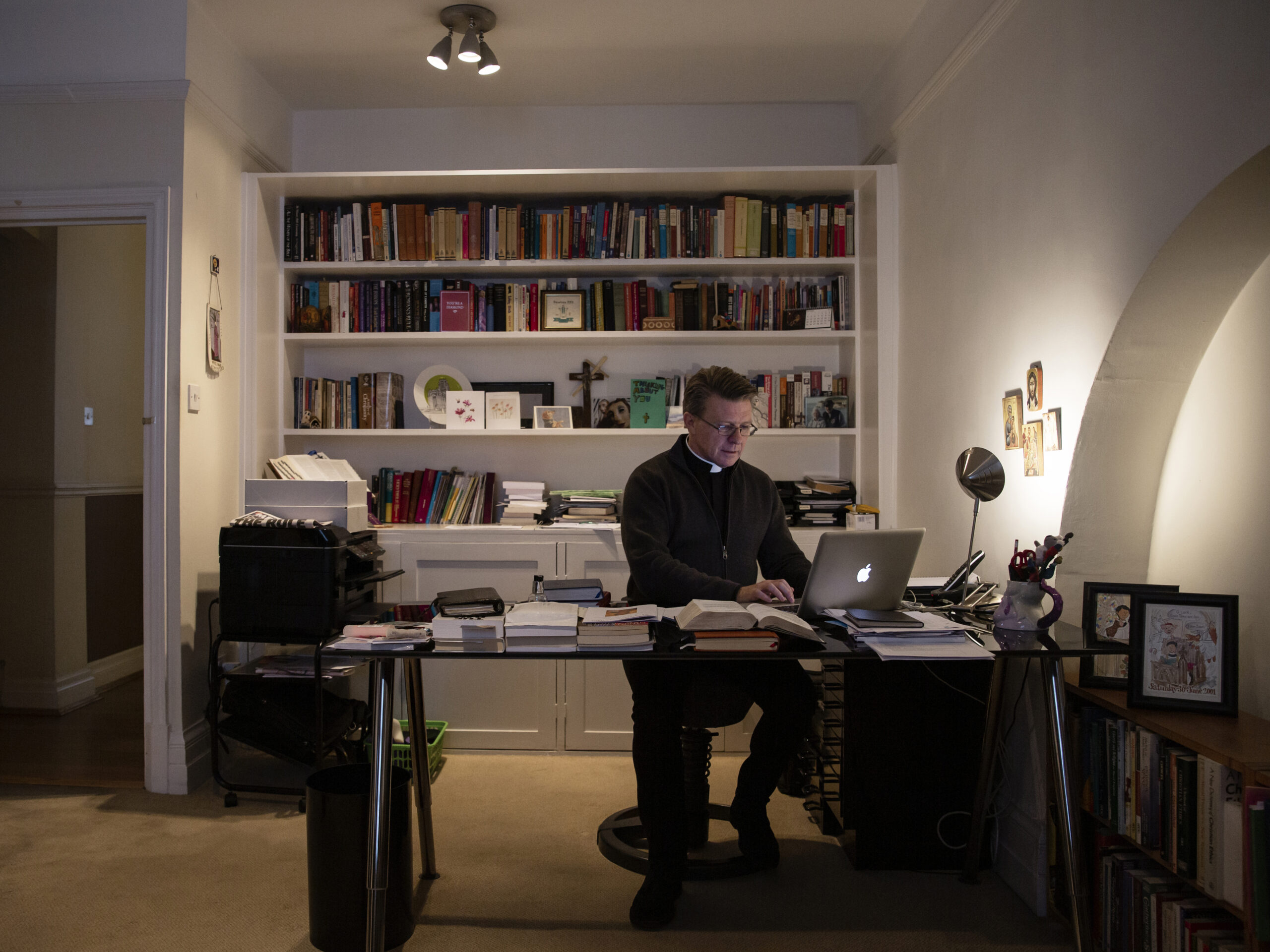
Reverend Simon Buckley, St Anne’s Church, Soho
Soho only ever falls quiet on Christmas Eve and Christmas night and it was like that for months. It was utterly silent and felt like being in a different place. I live above the church and likened it to living on a film set where the crew had all wrapped and gone home and I’d woken up and thought, should I be here? There were several people that I didn’t know who contacted me for help because they didn’t know who else to turn to. I was asked by the local pharmacy if I could help with deliveries to people who were self isolating and I would always do it in my collar, not that your medicines come with an extra blessing or anything, but it’s engraved on the doors outside ‘The Church of England serving the community’.
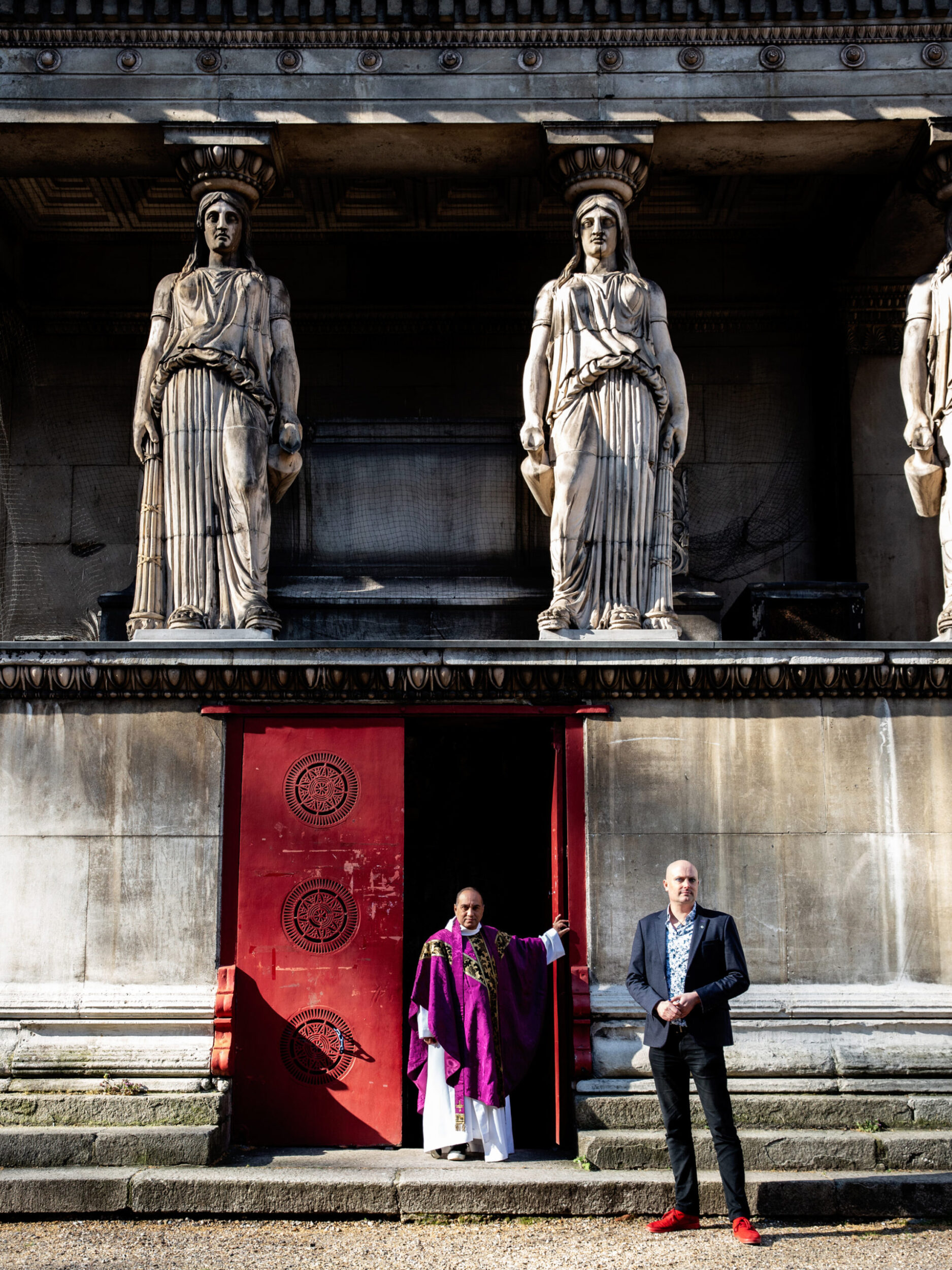
Reverend Peterson Feital, missioner to the Creative Industries and founder of The Haven + London Reverend Ric Stott, Methodist minister, artist and curator of The Wilderness Project exhibition
The Haven + London is a charity that looks after the mental health, well-being and spirituality of artists and creatives. We’ve always been on the front line dealing with individuals coming through severe anxiety but when Covid hit, the amount of calls quadrupled. We were having a number of calls from creatives who had lost jobs, some of whom had become homeless- there was complete devastation in the creative sector. For The Wilderness Project exhibition we put a call out based on the narrative of Jesus in the desert which is a religious Christian text, yet we had over 150 people submitting their artwork, the majority of whom have no connection with Christianity. It’s been such a joy to connect with the artists and talk about their work and experiences. Using art to explore experiences of the pandemic is powerful because art can hold all these difficult feelings without offering an answer, yet there’s a healing experience in just holding them- none of the work in the exhibition is offering an easy answer. In theological studies that notion can sometimes be forgotten and it’s been liberating to be reminded that there isn’t always an answer. There is faith in doubt.
